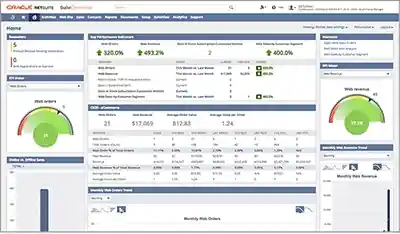In the sprawling world of computer science, the Computer System Analyst stands out as the bridge between the technological and the functional. While coders and network engineers remain engrossed in their specialized domains, it’s the computer system analyst who brings it all together, ensuring that IT solutions not only function but also align seamlessly with business objectives.
In this article:
- What is a Computer System Analyst?
- Skills Every Computer System Analyst Must Possess
- A Day in the Life of a System Analyst
- Educational Pathways to Become a Computer System Analyst
- Specialized Roles within System Analysis
- The Future of System Analysis
- Further Reading

What is a Computer System Analyst?
A Computer System Analyst, often simply referred to as a ‘system analyst,’ delves deep into a company’s computer system with the aim of optimizing its efficiency and productivity. They study the current procedures and design information systems solutions that help the organization operate more competently.
But it’s not all about algorithms and codes. A significant aspect of their job is to understand business requirements. They liaise between the stakeholders and the IT department, translating complex jargon into comprehensible instructions and vice versa.
For instance, if a company wants to implement a new software tool across multiple departments, it won’t just be about the software’s capabilities. How will it impact workflow? Is it cost-effective? Does it integrate well with the existing systems? These are the puzzles a computer system analyst solves.
Skills Every Computer System Analyst Must Possess
In a world dominated by rapid technological change, a computer system analyst must be agile, proactive, and, above all, versatile. It’s not just about understanding computer systems; it’s about integrating that knowledge with the ever-evolving demands of business environments. Here are some crucial skills every budding system analyst should master:
1. Technical Proficiency
At the core, system analysts must be well-versed in programming languages, databases, and systems. An in-depth understanding of software and hardware systems is fundamental.
2. Analytical Mindset
Analysts must identify potential problems and brainstorm solutions. This requires keen observational skills, a methodical approach, and the ability to think critically.
3. Effective Communication
Bridging the gap between the IT department and other business units requires impeccable communication skills. Analysts should be adept at translating complex technical details into layman’s terms.
4. Project Management
Often, system analysts are at the helm of IT projects. Organizational and multitasking skills, coupled with a knowledge of project management tools, are vital.
5. Business Acumen
A nuanced understanding of business processes is crucial. Analysts need to know how businesses operate to offer the most efficient IT solutions.
6. Teamwork and Collaboration
System analysts seldom work in isolation. They collaborate with developers, managers, and other stakeholders. Being a team player is indispensable.
7. Adaptability
In an ever-changing tech landscape, analysts must quickly adapt to new tools, technologies, and methodologies.
8. Attention to Detail
Overlooking minutiae can lead to significant system errors. A meticulous approach ensures that systems run smoothly and efficiently.
A Day in the Life of a System Analyst
A computer system analyst’s day is as dynamic as the tech industry itself. While no two days might look the same, certain core tasks and challenges punctuate the role.
Let’s walk through a typical day:
8:00 AM:
The morning begins with a quick review of emails, checking for any system alerts, updates from the IT team, or feedback from other departments.
9:00 AM:
Attend the daily stand-up meeting with the IT team. Discuss ongoing projects, potential challenges, and the day’s priorities.
10:00 AM:
Delve into data analysis. Examine system logs, identify patterns, and monitor system performance.
11:30 AM:
Meet with department heads. Understand their technological needs, gather feedback on existing tools, and discuss potential IT solutions.
1:00 PM:
Lunch break. It’s essential to recharge!
2:00 PM:
Work on designing a new information system. This involves sketching out system structures, selecting appropriate software, and considering integration with existing systems.
3:30 PM:
Collaborate with software developers. Ensure that the software being developed aligns with business requirements and user needs.
5:00 PM:
Document findings, solutions, and recommendations. Keeping a clear record is crucial for transparency and future reference.
6:00 PM:
Wind down the day by revisiting the emails, ensuring all queries have been addressed, and prepping for the next day.
Throughout the day, unexpected challenges might arise—a system glitch, urgent software updates, or an unplanned meeting. Adaptability and problem-solving are the keys to navigating these challenges. Every day is a new puzzle, and that’s what makes the life of a system analyst so invigorating.
Educational Pathways to Become a Computer System Analyst
Embarking on a career as a computer system analyst is an exciting journey that merges technology with business. The educational roadmap is versatile, with various pathways catering to different aspirations and backgrounds. Let’s delve deeply into the educational avenues one can pursue to become adept in this role.
1. Bachelor’s Degree in a Relevant Field
A bachelor’s degree is often the minimum educational requirement for an entry-level position as a computer system analyst. Relevant fields include:
- Computer Science: This foundational degree offers a solid grounding in programming, algorithms, data structures, and system architecture.
- Information Technology (IT): More applied than computer science, IT focuses on the practical aspects of implementing and managing computer systems.
- Management Information Systems (MIS): This interdisciplinary degree marries business and technology, training students to leverage technology for business optimization.
2. Specialized Degree Programs
Some institutions offer specialized bachelor’s or master’s programs tailored for aspiring system analysts. These may include:
- Systems Analysis and Design: Directly aligns with the responsibilities of the role, focusing on system architecture, software development, and user experience.
- Business Analytics: Emphasizes the use of technology and data to drive business decisions, making it pertinent for analysts keen on strategic roles.
3. Gaining Practical Experience
While academic knowledge is vital, hands-on experience is equally crucial. Consider the following:
- Internships: Many degree programs offer internships with tech companies or IT departments, allowing students to gain practical insights and establish industry connections.
- Capstone Projects: These culminating projects, often undertaken in the final year, challenge students to design and implement solutions for real-world problems.
4. Postgraduate Studies
For those looking to specialize further or move into higher managerial roles, postgraduate education can be beneficial:
- Master’s in Computer Science or IT: Provides deeper knowledge of advanced topics and may offer specializations like AI, data analytics, or cybersecurity.
- MBA with an IT Focus: Ideal for those eyeing leadership roles, this program offers a comprehensive understanding of business operations with a focus on technology.
5. Certifications
Though not always mandatory, professional certifications can provide an edge in the job market:
- Certified Information Systems Analyst (CISA)
- Certified Business Analysis Professional (CBAP)
- Cisco, Microsoft, or Oracle Certifications: For those specializing in specific technologies or platforms.
6. Continuous Learning and Workshops
The tech world is ever-evolving. Regularly attending workshops, seminars, and courses (often available online) ensures that a system analyst’s knowledge remains current.
7. Cross-disciplinary Training
Given the interdisciplinary nature of the role, courses in fields like finance, marketing, or operations can be valuable. A holistic understanding of business processes empowers system analysts to offer more effective solutions.
The path to becoming a computer system analyst is multifaceted. While formal education provides the foundation, continuous learning, hands-on experience, and cross-disciplinary exposure are pivotal. Aspiring analysts should stay curious, adaptable, and proactive in their educational pursuits, ensuring they’re well-equipped to thrive in this dynamic intersection of technology and business.
» You may also like the article “Interview with John, a former Cisco Analyst“!
Specialized Roles within System Analysis
The domain of system analysis is vast, and as technology and business processes have evolved, so have specialized roles within this field. These roles have emerged to address the intricate needs of modern organizations, allowing for more focused expertise in specific areas. Here’s an in-depth exploration of some of the specialized roles within system analysis.
1. Business Systems Analyst
A Business Systems Analyst primarily focuses on identifying business needs and finding technical solutions to address them. They serve as the bridge between the non-technical stakeholders and the IT department, ensuring that systems are developed in alignment with business goals.
Key Responsibilities:
- Eliciting, documenting, and analyzing business requirements.
- Modeling business processes using tools like UML or BPMN.
- Collaborating with the software development team to implement solutions.
2. IT Systems Analyst
An IT Systems Analyst emphasizes the technological aspects of system analysis. They delve deep into how systems are designed, configured, and optimized.
Key Responsibilities:
- Evaluating current IT systems and recommending improvements.
- Overseeing system upgrades and ensuring integration with existing architecture.
- Collaborating with vendors and IT teams to ensure the functionality of hardware and software.
3. Data Systems Analyst
Given the explosion of big data, the Data Systems Analyst specializes in systems that collect, process, and analyze vast amounts of data. Read the article “Data Science Basics“
Key Responsibilities:
- Designing and maintaining databases and data warehouses.
- Ensuring data integrity, security, and optimal performance.
- Collaborating with data scientists and business stakeholders to ensure data-driven decision-making.
4. ERP Systems Analyst
Organizations often use Enterprise Resource Planning (ERP) systems to integrate various business processes. An ERP Systems Analyst specializes in these systems, ensuring their seamless implementation and functioning.
Key Responsibilities:
- Implementing and customizing ERP software like SAP, Oracle, or Microsoft Dynamics.
- Training users and creating documentation.
- Analyzing business processes to optimize the use of ERP features.

5. Cybersecurity Systems Analyst
With the increasing threat landscape, the Cybersecurity Systems Analyst focuses on ensuring that all systems are secure from external threats.
Key Responsibilities:
- Conducting vulnerability assessments and penetration tests.
- Recommending security measures and best practices.
- Collaborating with IT teams to implement security protocols.
6. Healthcare Systems Analyst
Healthcare is a specialized field with its own set of systems. A Healthcare Systems Analyst understands both the medical and technological sides of the equation.
Key Responsibilities:
- Implementing and optimizing Electronic Health Record (EHR) systems.
- Ensuring compliance with healthcare regulations.
- Analyzing clinical data to drive improvements in patient care.
7. Financial Systems Analyst
In the finance domain, a Financial Systems Analyst focuses on systems that handle transactions, investments, and other fiscal activities.
Key Responsibilities:
- Implementing and optimizing financial software solutions.
- Ensuring financial data integrity and compliance with regulations.
- Collaborating with finance teams to streamline processes.
The realm of system analysis is diverse, with specialized roles catering to unique sectors and needs. Each role requires a combination of technical know-how, domain-specific knowledge, and the ability to understand and translate stakeholder requirements. As organizations become more intricate and their needs more nuanced, these specialized roles within system analysis ensure that the right expertise is applied to every challenge.
The Future of System Analysis
As we stand on the precipice of a new era of technological advancements, the realm of system analysis is not immune to the transformations brought about by emerging technologies. From the advent of Artificial Intelligence (AI) to the Internet of Things (IoT), the role of the system analyst is evolving, adapting, and integrating these novel elements to remain pertinent and efficacious. Let’s explore the future vistas of system analysis influenced by these technological giants.
1. Artificial Intelligence (AI) and Machine Learning
- Predictive Analysis: With AI, system analysts will have tools that can predict system failures or inefficiencies before they happen, allowing for proactive solutions.
- Automation of Routine Tasks: Routine tasks such as data collection, preliminary analysis, and certain levels of troubleshooting can be automated using AI, freeing the analyst to focus on more complex issues.
- Enhanced Decision Making: Machine Learning can assist system analysts in decision-making processes by offering data-driven insights and recommendations based on patterns undetectable to the human eye.
2. Internet of Things (IoT)
- Complex System Integration: With billions of devices interconnected, system analysts will face the challenge and opportunity of ensuring these devices communicate efficiently and securely.
- Real-time Analysis: IoT devices constantly transmit data. System analysts will need tools and strategies to analyze this influx of real-time data, optimizing systems on-the-fly.
- Security Concerns: The expansion of connected devices broadens the potential threat landscape, necessitating a renewed focus on system security and integrity.

3. Augmented Reality (AR) and Virtual Reality (VR)
- Enhanced Troubleshooting: AR can overlay data and visual cues onto real-world systems, aiding analysts in pinpointing issues or understanding complex system structures.
- Virtual System Modeling: VR can provide system analysts with immersive environments to model and test new system structures before they’re implemented in the real world.
4. Blockchain Technology
- Secure Data Transactions: Blockchain could revolutionize how data is transferred and authenticated, providing system analysts with more secure methods for data transmission.
- Decentralized Systems Analysis: The decentralized nature of blockchain presents both a challenge and an opportunity for analysts to understand and optimize non-traditional system architectures.
The intersection of system analysis with emergent technologies ensures that the role will continue to be dynamic, challenging, and indispensable. System analysts of the future will need to be versatile, perpetually learning, and ready to harness the potential of these technologies to drive efficiency and innovation.
Further Reading
For those eager to delve deeper into the intricate world of system analysis and understand its nuances, here are some seminal books that offer profound insights:
- “Systems Analysis and Design” by Alan Dennis, Barbara Haley Wixom, and Roberta M. Roth: A comprehensive guide that covers both traditional and emerging methodologies in system analysis.
- “The Essentials of Computer Organization and Architecture” by Linda Null and Julia Lobur: Though not strictly about system analysis, this book provides foundational knowledge about computer architectures which can be invaluable for system analysts.
- “Artificial Intelligence: Structures and Strategies for Complex Problem Solving” by George F. Luger: A glimpse into how AI can be harnessed in various problem-solving scenarios, including system analysis.
Dive into these texts to solidify your foundational knowledge, stay updated on emerging trends, and prepare yourself for the future challenges and opportunities in system analysis.